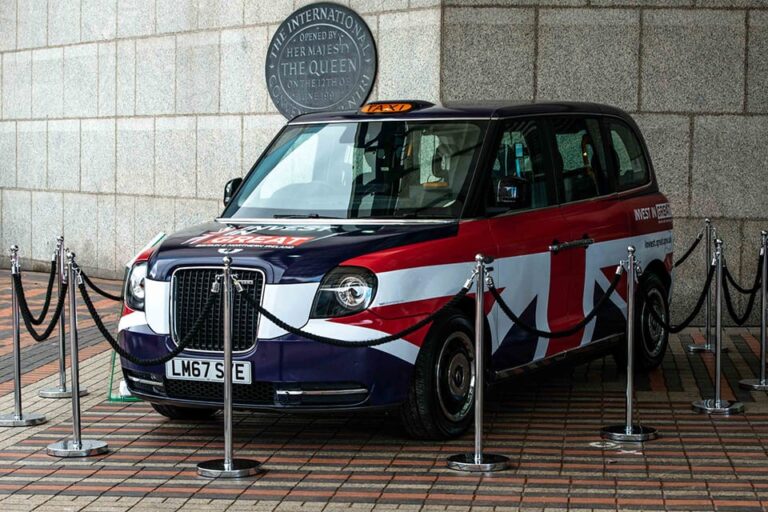Transport secretary Grant Shapps has announced that £3.4m will be invested in trials for wireless charging of electric taxis in Nottingham.
Some 10 Nissan and LEVC electrified taxis will be fitted with wireless charging hardware for six months to trial taxi rank-based charging.
The project, a collaboration between organisations including Cenex, Sprint Power, Shell, Nottingham City Council, Parking Energy, Transport for London and Coventry University could speed up charging and help reduce congestion in city centres.
Nottingham City Council will own the vehicles and provide them to drivers rent free.
Should the trial be successful, the technology could also be rolled out more broadly for public use.
Shapps said: “Taxi drivers up and down the country are at the vanguard of the EV revolution, playing a leading role in reducing air pollution in our city centres where people live, shop and work.
“New wireless technology will make using an electric taxi quicker and more convenient, allowing drivers to charge up at taxi ranks before heading off with their next passenger.”
Wireless charging at taxi ranks could provide an alternative to plugs and charge points, enabling multiple taxis to recharge simultaneously.
What’s more, the technology, which allows for shorter and more frequent bursts of charging, could also improve a taxi driver’s earning potential.
Electric taxi drivers currently benefit from measures including an exemption of zero-emission taxis from the higher rate of vehicle excise duty and £20m for 27 local authorities to install electric taxi charge points across England and Scotland.
The UK government is also offering a £50m grant fund that provides drivers with up to £7,500 off the price of a new, eligible, purpose-built taxi.





